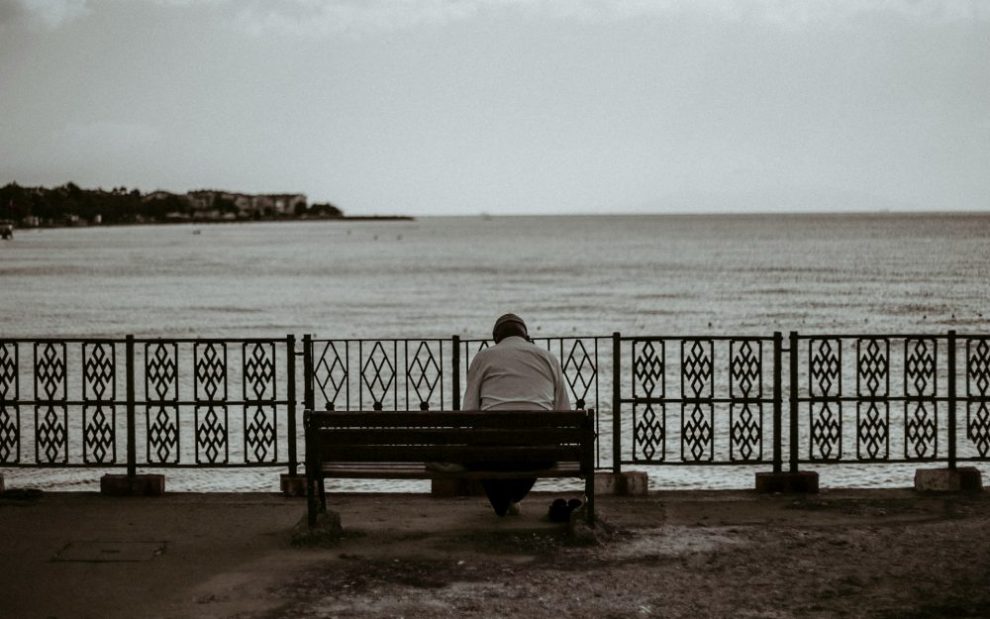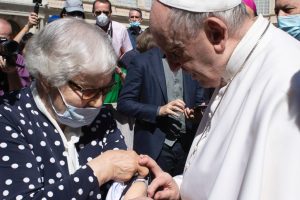I work with homeless and at-risk youth. I’ve been doing it for 42 years, during the first couple decades in or around New York City and for the last 20 years in Vermont at a nonprofit organization called Spectrum Youth & Family Services, where I serve as executive director.
When I use the adjective “homeless,” most people have some understanding of what this is and means. “At-risk,” however, covers a broad range. These include youth who are involved in human trafficking; runaways; young people suffering from substance use disorder and/or emotional disorders, including depression, anxiety, suicidality, and cutting; gang members; high school dropouts; unemployed or underemployed people; and teens in or exiting the foster care system. As I tell our supporters, most of the time it is a combination of these, for example a youth who is a runaway and also addicted to drugs; someone who is involved in human trafficking, used to be in foster care, and experiences suicidal ideation.
At Spectrum, we work with youth in both Burlington and another city, St. Albans. As executive director, I spend most of my time doing administrative tasks such as budgeting, strategic planning, and fundraising. I don’t actually interact very much with the more than a thousand youth who come through our doors each year, but I commit myself to making and serving dinner once a month in our drop-in center and also cooking breakfast monthly for the 16 kids living in our shelter. It’s a good way for me to remember why we do what we do, to meet and interact with our staff, and to get to know some of our youth.
That is how I met Karen. I was making dinner one night, and an 18-year-old woman introduced herself to me. Or one of our staff introduced her to me. I cannot exactly remember, because this was over a dozen years ago, but she made an impression. She had a bright smile and a friendly disposition. Probably the best word to describe her was sweet. She seemed kind and sweet.
When I meet our youth at Spectrum, I never ask, “So tell me how you became homeless and ended up here.” I don’t really consider that my business. If one of them wants to volunteer that kind of information to me, I’m all ears, but I never ask.
I continued to bump into Karen during the next several months, and we’d chat. She was a prolific reader, always with a book in hand, and I’d inquire about what she was reading. She had apparently been in and out of different foster homes and institutions her entire life. Her birth family had all kinds of difficulties, and I was told it was very possible she had been sexually abused at some point.
Karen was carrying around a lot of trauma. This became most evident when I found out she had made a suicide attempt and was now in the psychiatric wing of the local hospital. I went there to visit her. She seemed surprised but also happy to see me. I didn’t ask about her suicide attempt; I was there as a way of showing support, to let her know that I and others from Spectrum cared about her. I brought a book to give to her, and she was grateful for it.
She was released from the hospital and continued to come to our drop-in center, but it was soon very apparent she had developed an eating disorder. Our staff spent hours trying to convince her to go into a specialized residential program, and more than once she said she’d do it and then backed out at the last second.
The physician assistant who worked in the health clinic in our building called me one day. “Karen is starving herself to death. She will die soon,” she told me.
Karen would often sit on a bench at the top of Church Street in Burlington, the main pedestrian walkway in the city, reading a book. I’d usually wave hello or stop to chat about something. But after that phone call from the PA, I saw her one afternoon, waved, kept walking, but then stopped.
I turned around and walked back to her, and I said something I haven’t said to any young person I’ve worked with in over four decades.
“I just want you to know I’m praying for you,” I said. “Praying that you feel better.”
I am a Catholic, but Spectrum is a nonsectarian nonprofit organization, so I do not feel it is my place to bring up faith or religion to any youth or staff member. I consider my work to be my vocation, why God has placed me on this Earth, but it’s not something I proselytize about or even discuss.
I said that to her and started to walk away. Karen jumped off that bench and approached me, her face beaming.
“Your prayers are working!” she said. “I’m feeling better!”
Her reaction startled me, and it also made me very happy. I didn’t say anything more to her, I just continued on, but seeing her reaction gave me hope that perhaps Karen was going to be OK after all.
About a month later I was seated at my desk at work, it was 9 a.m., and the phone rang. It was the social worker from our health clinic.
“Karen’s gone,” she said. “She took her life last night.”
I sat there, stunned. I don’t even remember what I said in response. I just remember sitting there in my chair, at my desk, staring into space, feeling tremendous sorrow.
There was no family to plan any kind of funeral service or remembrance for Karen, so some of our amazing and wonderful staff who knew Karen and cared so much about her decided to put one together at the Unitarian Universalist chapel across the street from the bench where I had last talked to her.
People were invited to come up to the microphone and talk about their remembrances of Karen. I debated in my mind whether I should go up or not, but when it looked like everyone who was going to speak had done so, and the service was about to end, I decided to go ahead. I went up to the mic and told the story of going to her a few weeks earlier and telling her that I was praying for her, and how she reacted so enthusiastically.
“Like all of you here,” I said, “I hoped to be the one to say the thing that would make Karen better, that would heal her. But I couldn’t. None of us could, and I don’t know why. But I do believe this. I believe that Karen knew she was loved by all of us at Spectrum. And I believe that matters, that counts for something. She knew she was loved.”
When you do the kind of work I do, for as long as I have, you are going to experience some tremendous victories, and I love to tell those stories to our supporters. Stories about the young man experiencing homelessness who came into our drop-in center for a sandwich, lived in our shelter for two years, and is now stably housed, fully employed, going to college at night, and is on our board of directors. There’s also the young woman who was living in our shelter, tried to take her life, was found by one of our staff and rushed to the hospital, and who now has a college degree and a full-time job as a social worker helping others.
But I am also quick to say that things do not always work out that way, that we do not always have a happy or successful outcome with every youth. I don’t go into any details, but when I say that, Karen is one of the people I’m thinking about.
It is a mystery to me, even after doing this work for more than four decades, why some people who come to us having suffered tremendous abuse and trauma heal and go on to live happy and prosperous lives, while others do not. What’s the difference? Is it just the amount and duration of pain and suffering that lead some people to take their lives, while others do not? I really do not know. I’ve had periods of deep depression and anxiety in my own life. I know what despair feels like. I know that psychic pain feels a hundred times worse than physical pain. At least to me it does.
I don’t have the answers for why Karen took her life. In my mind I keep a list of young people I know who have died by suicide, and after my morning centering prayer and lectio divina, I pray for them by name, Karen included. And I do sincerely believe what I said that day in the Unitarian church. I do believe Karen knew she was loved. And I believe that mattered.
This article also appears in the March 2024 issue of U.S. Catholic (Vol. 89, No. 3, pages 23-25). Click here to subscribe to the magazine.
Image: Unsplash/Murat Karahan













Add comment